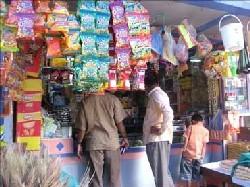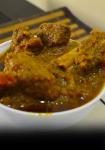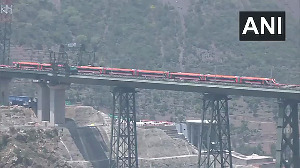Consumer goods companies are apprehending a dip in demand due to petrol price hike and an imminent increase in diesel prices that are adding pressure to customers, who are already reeling under the recent spike in interest rates.
The firms, which are already facing thin margins are also likely to face increased operational costs, analysts said. Consumer sentiment will definitely take a hit for the next 4-6 months as buyers are likely to postpone their purchases due to inflationary pressures. There will be surely a drop in demand," Godrej Appliances Vice-President Marketing and Sales Kamal Nandi said.
Consumer sentiment will definitely take a hit for the next 4-6 months as buyers are likely to postpone their purchases due to inflationary pressures. There will be surely a drop in demand," Godrej Appliances Vice-President Marketing and Sales Kamal Nandi said.
He said, as expected, if any hike in diesel prices is announced in immediate future, it will increase operational costs for companies, hence impact prices of goods for consumers.
"Any increase in distribution cost will lead to increase in product prices," Nandi said.
Expressing similar sentiments, Marico Group CFO and Chief HR officer Milind Sarwate said, "The immediate impact would be on consumer sentiment and will be more psychological than actual as consumers will anticipate an inflationary situation going ahead. This anticipation will make people cut down on spending to certain extent."
He, however, said there will be no slowdown in demand for essential items though discretionary products segments will get affected.
Analysts pointed out that fuel price hikes will add further burden to the consumer goods companies as their distribution costs will increase further.
"After the steep hike in petrol prices, the bigger worry is that increase in diesel prices is yet to be announced. Once that happens, distribution cost for most of the consumer goods companies will go up, thus putting a pressure on margins," Anand Rathi Financial Services Analyst Shirish Pardeshi said.
He said because of rising crude oil rate, packaging material that accounts for about 8-10 per cent of the total cost production for FMCG companies has also already become costlier.
On May 14, state-run oil companies had hiked petrol prices by Rs 5 a litre. This was the eighth hike in petrol price since June 2010 when the government freed petrol price from its control.
The government is also considering price hike of diesel, LPG and kerosene, which will be decided at the meeting of the Empowered Group of Ministers to be held this week.
Earlier this month, the Reserve Bank of India had announced an increase in its short-term lending and bank savings rates.
Consequently, leading banks, including PNB, OBC and YES Bank, have increased their interest rates by half a percentage point with effect from May 5, making all loans costlier.
However, some industry experts are seeing the positive side of the developments stating that spending on consumable items such as food items, clothes and electronics might increase as consumers cut down spending on houses and cars.
"Consumers' purchasing power is strong and people with savings are also enjoying good interest on their funds which leaves more money in the hands of people. In such as case consumers might spend more on consumable items other than houses, cars and other big purchases," Retailers Association of India CEO Kumar Rajagopalan said.
He said, the association has sent out note to its members seeking information on the impact of latest petrol price hike on consumer demand at retail stores.











